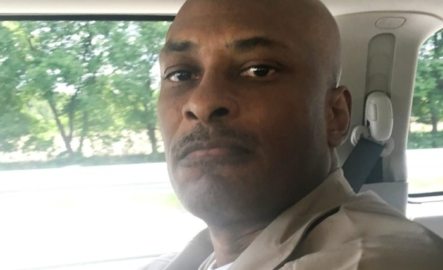“All people of African descent wherever they live, and in whichever part of the world are Africans and belong to the African nation.”- Osagyefo Dr. Kwame Nkrumah
As fate would have it, the first bullet missed him. The first bombing missed him also, heralding a plethora of assassination attempts on his life. After surviving so many plots, it became apparent to many that indeed, ‘Nkrumah never dies’. Five decades have passed since his passing, but the appellation to his name which casually rings of the lips of African people the world over, is still popular.
For certain, Francis Nwia Kofi Nkrumah, as were his proper names, will occupy the high and lofty commentary of history as sparking off the Independence struggle against colonialism in Africa. Perhaps the most astonishing feature of his life, was, his audacity to give it to the course of a ‘United States of Africa’ – his vision, scorned as a fantasy by his opposers. His fierce rhetoric on nationalism and socialism would him to be viewed with stern suspicion by Western powers and loathed at home.
Nkrumah was viewed as pompous and out of touch with reality. In the years following the Independence of Ghana, the effects of the economic downturn began to bite, the voices of descent began to sound louder, with calls for his removal from office.
After Ghana’s independence, many Ghanaians felt that Nkrumah’s attention had wandered off from issues of immediate concern to the internal affairs of his country, to something more grandeur; the total liberation and unification of the Africa continent. Is there a case to be made for why Nkrumah never dies?
Well, before Ghana gained independence, the first attempt on Nkrumah‘s life occurred in the early months of 1956. While he was having a meeting with many government ministers, a bomb went off in his Accra home. Nobody was hurt. This was a year before he led to Ghana gaining its independence in 1957.
Subsequently, four more attempts were made on his life. On August 2, 1962, Nkrumah was injured in another attempt on his life at the Upper Volta border in Ghana when a grenade was hurled at him (now Burkina Faso). Near him amid the crowd, several people were slain.
On accusations related to the attempted assassination, the Special Criminal Division of the Ghana Court sentenced seven people to death.
In Ghana’s capital city of Accra, on September 9, 1962, a bomb went off in Kwame Nkrumah’s official mansion, killing a little girl and injuring numerous others. Nearly 2000 visitors were present in Nkrumah’s official residence, Flagstaff House, at the time of the attack to commemorate his escape from a prior assassination attempt in October. As a result of the attack being attributed to the Kumasi Command, a new anti-Nkrumah group, numerous militants were detained nationwide to quell the growing opposition to Kwame Nkrumah’s government, which had chosen “scientific socialism” and one-party dictatorship over multiparty democracy.
Another attempt was made on January 2, 1964. A shot rang out as Nkrumah left his office at the Flagstaff House for lunch at the Christianborg Castle. He was accompanied by two security guards, one of whom was Dagarti, a British-trained professional police officer, and the other was provided by the president’s party, the Convention People’s Party (CPP). It came from a police officer who had just started working as a guard at the Flagstaff House. Later, he was recognized as Constable Ametewee. Ametewee had fired a shot at the president from a close distance. The president’s car’s driver vanished right away. According to a story, the President and Salifu dove for shelter as the CPP security guard hid behind the car.
By this time the people had come to realize that Nkrumah was a force to reckon with and there was no way they could get rid of him, the people of the then Gold Coast coined the phrase ‘Nkrumah Never Dies’ which eventually became a song.
Nonetheless, another assassination attempt was made on Nkrumah’s life. At an Independence Day celebration at Kulungugu, in Ghana’s Upper East Region, on March 6, 1964, President Dr. Kwame Nkrumah narrowly escaped a new murder attempt when a girl gave him flowers that were bombed To survive, Elizabeth Asantewaa, who was just 13 years old at the time, had her leg severed to stop the spread of the bomb explosion’s impact. Elizabeth Asantewaa, who lost her leg in the explosion, was not intended to be the bomb’s target; Ghana’s first president was.
While Nkrumah survived that, eventually death called and in April 1972 in Bucharest, Romania he gave up the ghost and the people of Ghana mourned the loss of the man whose leadership they trashed and eventually overthrew. That should have put an end to the phrase ‘Nkrumah Never Dies’, but as fate would have it and just like Nkrumah himself said; “As far as I am concerned, I am in the knowledge that death can never extinguish the torch which I have lit in Ghana and Africa. Long after I am dead and gone, the light will continue to burn and be borne aloft, giving light and guidance to all people.”
He was not wrong, the Pan-Africanist is remembered globally for his efforts to unite Africa and push the African agenda. In his home country, all infrastructures he put up have stood the test of time, and no President after him has been able to match up in that regard.
Today, not just his memory lives on, but some wish that he was still alive to keep the torch he lit in Ghana burning hot. While that is not possible, the fact cannot be contested that even in death, the mentor to many modern-day Pan-Africanists; Osagyefo Dr. Kwame Nkrumah, the man said to portray himself as a god, never dies.










